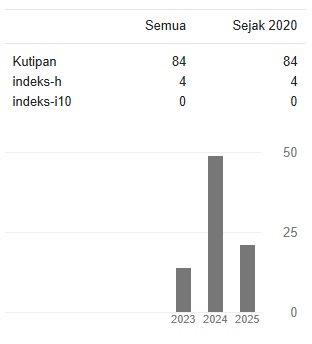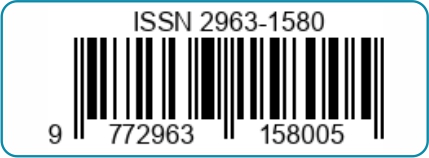Sanksi atas Pembunuhan Syibhu al-'Amd dalam Perspektif Fikih Jinayah
Sanctions for Syibhu al-‘Amd Murder in Fiqh Jinayah Perspective
Keywords:
Sanctions, Murder, Syibhu al-'Amd, Fiqh JinayahAbstract
This study aims to determine the sanctions for the murder of syibhu al-'amd in the perspective of jinayah jurisprudence and to find out the implications for the application of these sanctions. The type of research used is qualitative descriptive research (non-statistical), using library research methods and normative approach methods and philosophical methods. As a result of this study, it was found that the sanctions for the killing of syibhu al-'amd were diyat and kaffārat. So it is different from intentional murder whose punishment is qiṣāṣ, and different from accidental murder in its type of diyat, namely diyat mugallaẓah. The murder of syibhu al-'amd was deliberate in carrying out its actions, but not deliberately in killing the victim so that it deserves relief in the form of diyat payments borne by 'āqilah perpetrators and payments are not cash or given a period of three years. Another sanction for the killing of syibhu al-'amd is ta'zīr, which is enforced if the sanction is terminated for some reason. In addition, an additional sanction for the perpetrator of the murder of syibhu al-'amd is the prohibition of inheritance and wills as a consequence of the murder he committed. The implications or impacts that occur from the application of diyat sanctions on the perpetrators of the murder of syibhu al-'amd are to provide a peaceful life for the community, deter perpetrators of crime and murder, prevent from various tyrannies, and reduce the occurrence of murder. The application of diyat sanctions can also have bad implications because the perpetrator of the murder of syibhu al-'amd is not punished with qiṣāṣ sanctions, the perpetrator may think hopefully in killing, because the perpetrator thinks there is still a family that he can rely on in bearing the payment of diyat
Downloads
References
‘Audah, ‘Abd al-Qādir. Al-Tasyrī’ al-Jināī al-Islāmī Muqāranān bi al-Qānūn al-Waḍ‘I, Juz 2. Dār al-Kitāb al-‘Arabī , t.th.
Bin Qudāmah, Abū Muḥammad ‘Abdullah bin Aḥmad bin Muḥammad. al-Mugni li Ibn Qudāmah, Juz 8. Cet. I; t.t.p.: Maktabah al-Qāhirah, 1388 H/ 1968 M.
Al-Ju’fī, Abu ‘Abdillah Muḥammad bin Ismā'īl al-Bukhā’rī. Ṣaḥīḥ al-Bukhārī, Juz 6. Cet. V; Dār Ibn Kaṣīr, 1414 H/ 1993 M.
Kementerian Agama RI, Al-Qur’an dan Terjemahnya. Jakarta: Ummul Qura, 2017.
Al-Khin, Muṣṭafā Sa’id dkk. al-Fiqhu al-Manhaji ‘Alā Maẓhabi al-Imām al-Syāfi’i .Cet. II; Damaskus: Dār al-Qalam, 1413 H/1992 M.
Al-Muṭī’ī, Muḥammad Najīb. Al-Majmu’ Syarḥ al-Muhazzab, Juz 19. Cet.I; Madinah al-Munawwarah: al-Maktabah al-Salafiyyah, t.th.
Al-Nasāī, Aḥmad bin ‘Ali bin Syu’aib bin ‘Ali bin Sinān bin Baḥri bin Dīnār Abu ‘Abdu al-Raḥman. Sunan al-Nasāī, Juz 8. Cet. I; Qāhirah: al-Maktabah al-Tijāriyyah al-Kubrā, 1348 H/ 1930 M.
Qal’ajī, Muḥammad Rawās dan Ḥāmid Ṣādiq Qunaibī. Mu’jam Lugah al-Fuqahā .Cet. II; t.t.p.: Dār al-Nafāis li al-Ṭabā’ah wa al-Nasyr wa al-Tauzī’, 1408 H/ 1988 M.
Al-Quzwainī, Abū Abdullah Muḥammad bin Yazīd bin Mājah. Sunan Ibnu Mājah, Juz 3. Cet. I; t.t.p.: Dār al-Risālah al-‘Ālamiyyah, 1430 H/ 2009 M.
Sālim, Abu Mālik kamāl ibn al-Sayyid. Ṣaḥīḥ Fiqh al-Sunnah wa Adillatuhu wa Tauḍīḥ Maẓāhib al-Aimmah. Juz 4. Al-Qāhirah: al-Maktabah al-Taufīqiyyah, 1423 H/ 2003 M.
Al-Sijistānī, Abū Dāwud Sulaimān bin al-Asy’as al-Azdī Sunan Abī Dawud, Juz 6. Cet. I; t.t.p.: Dār al-Risālah al-‘Ālamiyyah, 1430 H/ 2009 M.
Suryabrata, Sumadi. Metodologi Penelitian. Jakarta: PT Raja Grafindo Persada, 2014.
Al-Syāzalī, Ḥasan ‘Alī. Al-Jināyāt fī al-Fiqhu al-Islāmī Dirāsah Muqāranah Baina al-Fiqhu al-Islāmi wa al-Qānūn. Cet. I; t.t.p.: Dār al-Kitāb al-Jāmi’ī, t.th.
Al-Tarmizī, Abu ‘Isa Muh}ammad bin ‘Isa. al-Jāmi’ al-Kabīr,Juz 3. Cet. I; Beirut: Dār al-Garb al-Islamī, 1416 H/ 1996 M.
Al-Tuwaijirī, Muḥammad ibn Ibrāhīm ibn ‘Abdullah. Mausu’atu al-Fiqh al-Islamī, Juz 5. Cet. I; t.t.: Baitu al-Afkār al-Dauliyyah, 1430 H/ 2009 M.
Al-Zuhailī, Wahbah ibn Muṣṭafa. Al-Fiqhu al-Islāmī wa Adillatuhu, Juz 7. Cet. IV; Damaskus: Dār al-Fikri, 1433 H/ 2011 M.
Jurnal Ilmiah:
Alviyan, Moh. “Tindak Pidana Penganiayaan yang menyebabkan Kematian Perspektif Hukum Positif dan Hukum Pidana Islam”, Rechtensudent Journal 1, no. 1 (April 2020): h. 71-81
Mubarok, Nafi’. “Tujuan Pemidanaan dalam Hukum Pidana Nasional dan Fiqh Jinayah”, Al-Qa>nu>n 18, No. 2 (Desember 2015): h. 296-323.
Musyahid, Achmad. “Hikmat At-Tasyri dalam Daruriyyah al-hamzah”, Al-Risalah 15, no. 2 (November 2015): h. 222-238.
Susilawati, Nilda. “Stratifikasi Al-Maqasid Al-Khamsah dan Penerapannya dalam Al-Dharuriyat, Al-Hajjiyat, Al-Tahsiniyyat”, Mizani 9, no. 1 (Februari 2015): h. 1-12.
Yeni, Fitri, dkk. “Pemrofilan Kriminal Pelaku Pembunuhan Berencana”, Psychopolytan 1, no. 1 (Agustus 2017): h. 1-10.
Disertasi, Tesis, dan Skripsi:
Devison. “Hukuman Diat Bagi Tindak Pidana Pembunuhan Semi Sengaja dalam Hukum Islam dan Relevansinya dengan Hukum pidana Indonesia”. Skripsi. Jakarta: Fak. Syariah dan Hukum Universitas Islam Negeri Syarif Hidayatullah Jakarta, 1430 H/ 2008 M.
Hasibuan, Marni. “Tinjauan Hukum Pidana Islam Terhadap Pembunuhan Menyerupai Sengaja Hubungan dengan Pasal 351 Ayat (3) KUHP”. Skripsi. Medan: Fak. Syari’ah dan Hukum UIN Sumatera Utara, 1440 H/2020 M.



 FOCUS AND SCOPE
FOCUS AND SCOPE EDITORIAL TEAM
EDITORIAL TEAM












